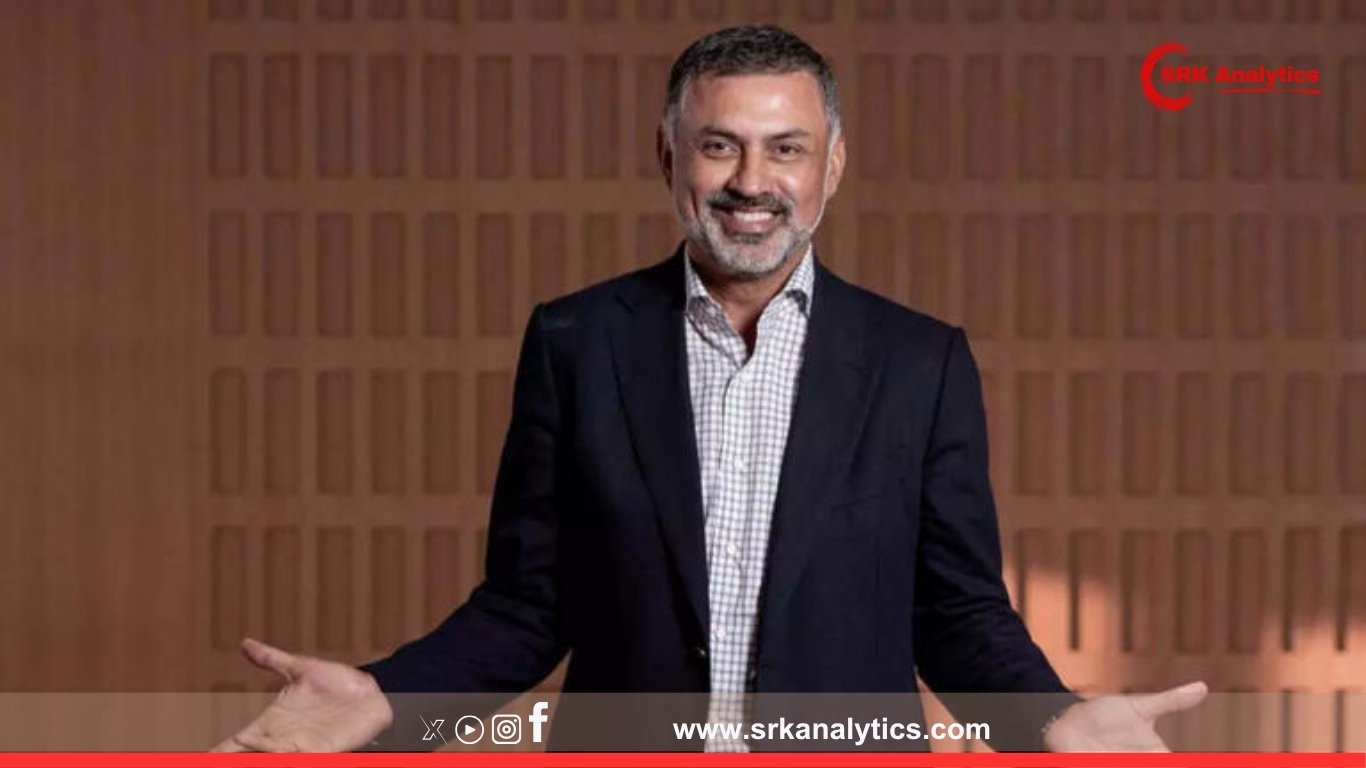Nikesh Arora, an alumnus of IIT-BHU, Harvard Business School, and Boston College, is among the most celebrated Indian-origin corporate leaders globally. Currently the Chairman and CEO of Palo Alto Networks, Arora’s career trajectory from an engineer to one of the world’s highest-paid CEOs is a powerful testament to ambition, adaptability, and strategic clarity.
Early Life And Academic Excellence
Born in Ghaziabad, India, Nikesh Arora completed his BTech in Electrical Engineering from IIT-BHU Varanasi, followed by an MBA from Northeastern University and an MS from Boston College. His technical foundation coupled with financial acumen built during his early Wall Street years shaped his multidimensional career spanning tech, telecom, finance, and cybersecurity.
Career Milestones
- Telecom & Finance (T-Mobile Europe, Deutsche Telekom)
Arora began his career at Wasserman, Salomon Brothers, and Putnam Investments, gaining significant exposure to financial management before moving to the telecom sector with T-Mobile Europe as Chief Marketing Officer. - Google (2004-2014)
At Google, Arora scaled up rapidly, serving as Chief Business Officer, driving revenue expansion, international operations, and strategic acquisitions during Google’s meteoric rise in the 2000s. - SoftBank (2014-2016)
He then joined SoftBank as President and COO, working directly under Masayoshi Son. During his tenure, Arora was among the highest-paid executives globally, earning over $200 million in compensation packages in two years, reflecting his stature as Son’s likely successor before his exit due to strategic differences. - Palo Alto Networks (2018-present)
Currently, as CEO and Chairman of Palo Alto Networks, Arora is spearheading its transformation from a firewall security firm to a holistic AI-powered cybersecurity solutions leader, pushing revenue growth to over $8 billion annually, with market valuations exceeding $90 billion.
Nikesh Arora’s Revealed ‘Cheat Code’ To Building A Company
Speaking recently at a global leadership summit, Arora shared his core mantra, calling it a ‘cheat code’ for building companies:
“There is no shortcut. The only cheat code is to hire amazing people and empower them to do amazing things.”
He elaborated that:
- Great companies are built on great teams, not just visionary founders.
- Leaders should prioritise recruitment, culture, and accountability equally.
- Micromanagement kills scale; trust, clarity, and ownership accelerate it.
- Listening to team insights and customer pain points continuously is non-negotiable for long-term success.
Leadership Philosophy
Arora emphasises on ‘leadership through clarity and execution’, often citing:
- Clarity of vision: The leader must articulate a simple, bold, and inspiring purpose.
- Execution obsession: Ideas matter only when executed with operational excellence.
- People as force multipliers: Teams outperform individuals when trust and incentives are aligned.
He believes a CEO’s main job is “to assemble the right leadership team and remove obstacles so they can perform at their best”.
Compensation And Global Recognition
In FY23, Nikesh Arora’s total compensation at Palo Alto Networks crossed $151 million, placing him among the top 5 highest-paid CEOs globally. The majority of this is structured in performance-linked stock grants, aligning leadership growth with shareholder returns.
Key Achievements At Palo Alto Networks
| Initiative | Impact |
|---|---|
| Cloud & AI cybersecurity platform expansion | Positioned Palo Alto Networks as the global leader in AI-driven security solutions |
| Major acquisitions | Including Demisto, Expanse, and Bridgecrew to integrate advanced security capabilities |
| Revenue growth | Grew annual revenues from $2 billion in 2018 to over $8 billion in 2024 |
| Shareholder value | Market cap soared from ~$20 billion at joining to over $90 billion today |
Personal Traits Driving His Success
- Strategic clarity: Always aligning roles with business outcomes.
- Adaptive leadership: Transitioning seamlessly across industries.
- Networking and stakeholder management: Building credibility with founders (Larry Page, Masayoshi Son) and boards.
- Discipline and self-learning: Continual personal development despite career successes.
Challenges Faced And Lessons Learned
Arora has candidly shared challenges including:
- Navigating cultural transitions between the US, Europe, and Japan.
- Facing scepticism over rapid rises within organisations.
- Learning to “leave ego behind” while integrating into founder-led companies like Google and SoftBank.
- Realising money and titles alone do not drive fulfilment, but purpose and impact do.
Impact On India’s Global CEO Legacy
Nikesh Arora joins the ranks of Indian-origin CEOs such as Sundar Pichai (Google), Satya Nadella (Microsoft), Arvind Krishna (IBM), Shantanu Narayen (Adobe), and Ajay Banga (World Bank President) in shaping global tech and business leadership. His journey:
- Inspires millions of Indian engineers and managers to build cross-industry careers.
- Highlights India’s growing talent footprint in global boardrooms.
- Encourages Indian startups to focus on people, execution, and long-term thinking over mere valuations.
Future Outlook
As Palo Alto Networks accelerates its AI and cloud security offerings amid rising global cyber threats, Arora’s leadership will be crucial in:
- Maintaining high growth while transitioning into a software subscriptions model.
- Expanding market share in Asia-Pacific and emerging markets.
- Leading the industry shift towards autonomous cybersecurity leveraging AI and predictive analytics.
Conclusion
From an IIT engineer to a global tech leader commanding billion-dollar valuations and admiration across boardrooms, Nikesh Arora’s career embodies strategic clarity, fearless transitions, and people-centric leadership. His ‘cheat code’ serves as a timeless reminder for aspiring founders and CEOs:
“Hire great people, trust them, and remove obstacles. That’s how companies scale and legacies are built.”
Disclaimer: This article is for informational and analytical purposes, summarising leadership philosophies and corporate announcements relevant to professional and business readers. Readers should conduct further research before applying management insights in organisational contexts.












There is a balance of intimacy and universality. The writing speaks directly yet resonates widely, bridging personal and shared experience.